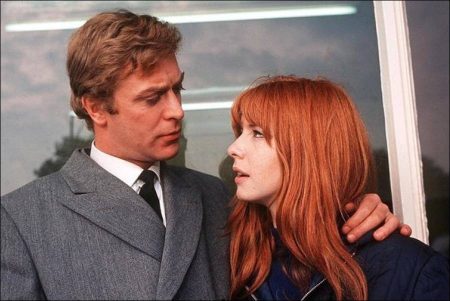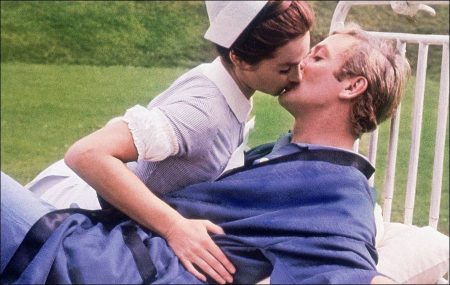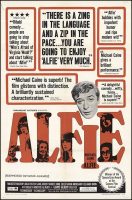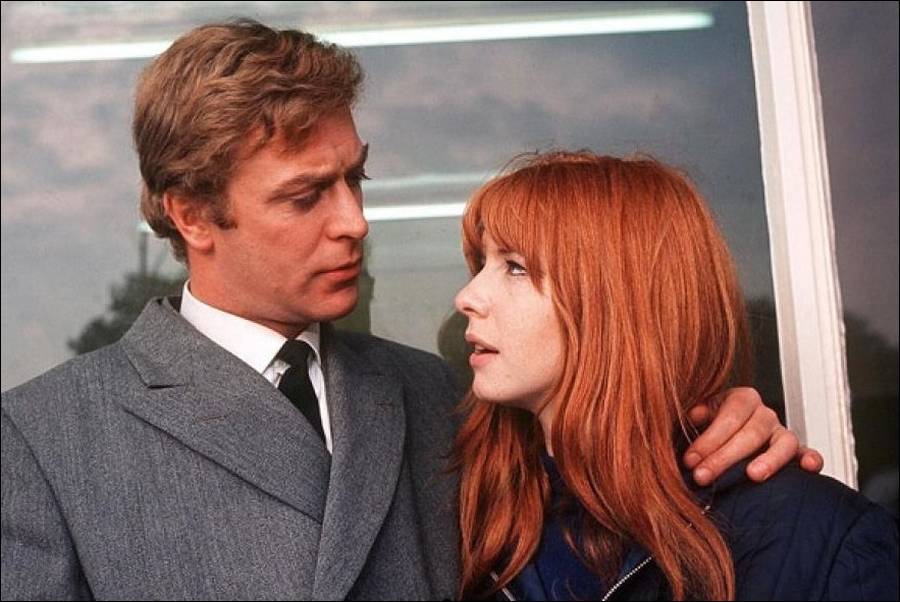Taglines: Is every man an Alfie? Ask any girl.
For Alfie, the only real life is sex life. Only then, can he kid himself he is living. Sex is not used as the working-class boy’s way to “the top”. Executive status has no appeal for Alfie. Nor has class mobility. He is quite content to stay where he is, as long as the “birds” are in “beautiful condition”, as he assures us they are in one of the candid, over-the-shoulder asides to the camera which this movie carries over from Tom Jones (1963). This movie shows how much of the “swinging 60s” quality of London life was a male creation, and through the dominance of the fashion photographers, a male prerogative.
Alfie is a 1966 British romantic comedy-drama film directed by Lewis Gilbert and starring Michael Caine. It is an adaptation by Bill Naughton of his own 1966 novel and 1963 play of the same name. The film was released by Paramount Pictures.
Alfie tells the story of a young womanising man who leads a self-centred life, purely for his own enjoyment, until events force him to question his uncaring behaviour, his loneliness and his priorities. He cheats on numerous women, and despite his confidence towards women, he treats them with disrespect and refers to them as “it”, using them for sex and for domestic purposes. Alfie frequently breaks the fourth wall by speaking directly to the camera narrating and justifying his actions. His words often contrast with or totally contradict his actions.
This was the first film to receive the “suggested for mature audiences” classification by the Motion Picture Association of America in the US, which evolved into the modern PG rating. The film had its World Premiere at the Plaza Theatre in the West End of London on 24 March 1966.
The film is unusual in that it has no opening credits and the end credits feature photos of the principal actors, as well as of the main technical crew, including director Gilbert and cameraman Otto Heller. It was shot at Twickenham Studios with scenes shot at several locations in London;[5] including Waterloo Bridge which is seen at the beginning and end of the film where the title character walks into the distance accompanied by a stray dog[6] and Tower Bridge which is the backdrop for the photography scene with Shelley Winters.
Several well-known actors, including Richard Harris, Laurence Harvey, James Booth and Anthony Newley turned down the title role due to the then-taboo subject matter. Despite having played “Alfie” on Broadway, Terence Stamp categorically declined to reprise the role on film, so he and casting agents approached his good friend and then roommate Michael Caine: not one to then snub a role about a common man, Caine agreed to do it. He won huge acclaim for the breakthrough role of his career and continued to land better parts.
The original film soundtrack featured jazz saxophonist Sonny Rollins with local musicians from London including Stan Tracey on piano, who improvised “Little Malcolm Loves His Dad” (although never credited), Rick Laird on bass, Phil Seamen on drums, Ronnie Scott on tenor sax.
The Sonny Rollins album Alfie, orchestrated and conducted by Oliver Nelson, was recorded in New Jersey, United States in January 1966. It features Rollins with J.J. Johnson – trombone (tracks 1 & 2), Jimmy Cleveland – trombone (tracks 3-6), Phil Woods – alto saxophone, Bob Ashton – tenor saxophone, Danny Bank – baritone saxophone, Roger Kellaway – piano, Kenny Burrell – guitar, Walter Booker – bass and Frankie Dunlop – drums
The title song, “Alfie”, written by Burt Bacharach and Hal David, was sung by Cher over the film’s closing credits in the US release reaching #32 on the Billboard Hot 100 chart. It became a hit for British singer Cilla Black (Millicent Martin sang Alfie on its British release) and for Madeline Eastman and Dionne Warwick.
Alfie (1966)
Directed by: Lewis Gilbert
Starring: Michael Caine, Shelley Winters, Millicent Martin, Vivien Merchant, Jane Asher, Julia Foster, Shirley Anne Field, Eleanor Bron, Denholm Elliott, Alfie Bass, Shirley Bassey
Screenplay by: Bill Naughton
Production Design by: Denis Johnson
Cinematography by: Otto Heller
Film Editing by: Thelma Connell
Art Direction by: Peter Mullins
Makeup Departme: Betty Glasow, Freddie Williamson
Music by: Sonny Rollins
MPAA Rating: None.
Distributed by: Paramount Pictures
Release Date: March 24, 1966 (United Kingdom), August 24, 1966 (United States)
Views: 187








